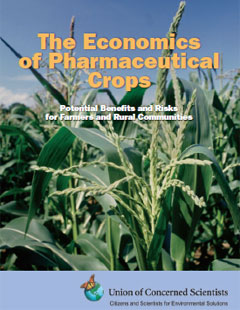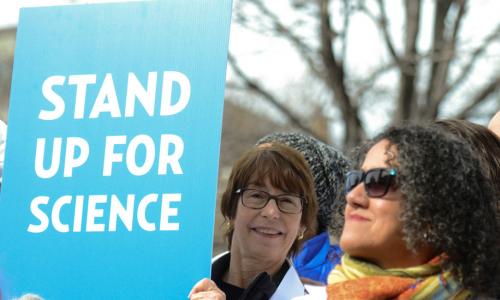The current debate over genetically engineered pharmaceutical and industrial crops (or "pharma" crops) is replete with assertions by the pharma crops industry that these crops will generate enormous economic benefits for rural America—especially for farmers suffering economic hardships and eager for new opportunities. One state, Missouri, has even subsidized a new research center in pursuit of those benefits.
Though often repeated, these expansive claims remain just that, claims—assertions not backed by economic analyses. This lack of analysis represents a big gap in an important debate.
To fill that gap, the Union of Concerned Scientists (UCS) commissioned Dr. Robert Wisner, university professor in the department of economics at Iowa State University, to examine the purported economic benefits of pharma crops. His report provides a thoughtful assessment of the issue—identifying the sources of potential benefits, qualitatively estimating the magnitude of these benefits (it is too early for quantitative analysis), and identifying those who may or may not benefit from pharma crops and under what circumstances.
While the pharma crop industry is in its early stages and its course is uncertain, the report leads UCS to the inescapable conclusion that pharma crop proponents' claims are inflated and, importantly, whatever benefits do materialize, most farmers will not be major beneficiaries.




